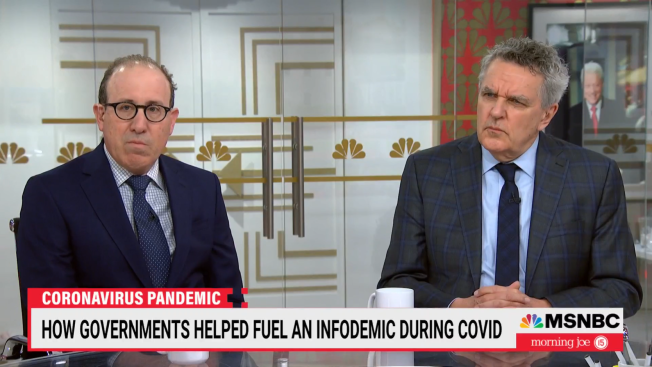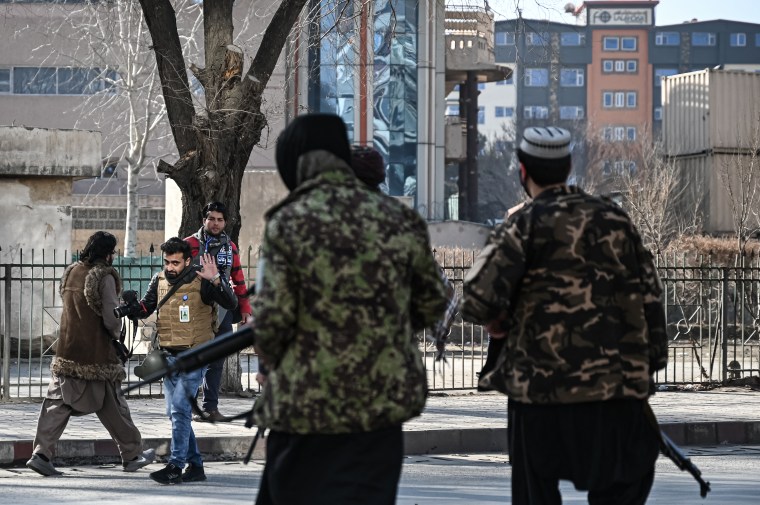Today is World Press Freedom Day!
For over two months now, the invasion of Ukraine has dominated the news, and much of CPJ’s work has been dedicated to supporting journalists covering the war. From disbursing safety information in Ukrainian, Russian, and English, working to coordinate the distribution of personal protective gear, or providing first aid kits and life-saving medical equipment to journalists on the ground, CPJ continues to do all we can to keep journalists safe and able to report freely.

Ukraine is not the only place where CPJ’s global staff are hard at work documenting press freedom violations and advocating for the rights of journalists to do their jobs safely and without fear of reprisal. This World Press Freedom Day, we spoke with CPJ’s program coordinators for each region–Africa, Americas, Asia, Europe and Central Asia, and the Middle East and North Africa–to learn more about what’s happening in their region and how CPJ is helping:
Africa
Since the beginning of the year, Ethiopian authorities have released the majority of the journalists arrested during a November 2021 crackdown, as authorities enforced a draconian state of emergency law amid an ongoing civil war. CPJ has documented a drastic deterioration of press freedom in Ethiopia during the 18-month war and continues to call on authorities to discontinue any pending cases against released journalists and to free two other journalists who remain behind bars—Bikila Amenu and Dessu Dulla. Meanwhile, in Tanzania, CPJ spoke to editor Simon Mkina about the “rush of relief” he felt following the lifting of a years-long ban on his paper, Mawio. The rescinding of bans against Mawio and three other publications is a sign of an opening of the media space in Tanzania under the government of President Samia Suluhu Hassan. CPJ continues to call on authorities to ensure the overhaul of a raft of restrictive media laws and accountability for past attacks on the press, including the 2017 disappearance of freelancer Azory Gwanda. Finally, the Africa team documented a wave of recent arrests in the breakaway region Somaliland, where 18 journalists were arrested in April. Most of the journalists were released following intense campaigning by local, regional, and international press freedom organizations. However, CPJ continues to advocate for the release of three journalists–Mohamed Abdi Ilig, who is very ill, Abdijabar Mohamed Hussein, and Abdirahman Ali Khalif.
Americas
The Americas team has focused heavily on Mexico this year–not just documenting the ongoing deadly violence against the press but also engaging in efforts to support journalists through initiatives like proposed reforms to the federal protection mechanism for journalists and the People’s Tribunal on the Murder of Journalists, which held its first in-country hearing in Mexico on April 26 and 27. We’re also looking ahead to national elections in Brazil later this year, working with a wide range of partner organizations to make sure journalists there will be able to work as safely as possible during what is going to be a contentious electoral period. At the beginning of the year, we worked with a group of regional and international organizations to help break the news that Pegasus spyware was used to infect the devices of a number of journalists in El Salvador, and are continuing to push for answers from the Salvadoran government on why and how these reporters were targeted.
Asia
Since last year, CPJ has helped over 60 journalists and their families relocate from Afghanistan, and we continue to do what we can to assist journalists who are in trouble there. CPJ has noted journalists continue to come under immense pressure from the Taliban and many are seeking to leave the country, or have fled to Pakistan or Iran. Meanwhile, in India, imprisoned journalists in Kashmir remain a key focus of our advocacy work. Through emergency grants, we have also played a key role in helping exiled media from Myanmar remain strong. The press freedom landscape in the country grew intolerable last year after 26 journalists were imprisoned following the military action to seize control of the country in early February.
Europe and Central Asia
In Europe, the digital security of journalists remains a top concern. In recent weeks, CPJ highlighted the case of a Romanian journalist whose intimate photos were exposed in various porn sites after she reported on the plagiarism case of the country’s prime minister. CPJ documented her case and joined media freedom organizations in an open letter to the Romanian government. In Greece, financial journalist Thanasis Koukakis revealed that his phone had been targeted with Predator spyware, according to an analysis by Citizen Lab, and was surveilled for months last year. CPJ highlighted the case and joined a call with other organizations to demand an explanation from the Greek government. Investigative journalists have been targeted in Central Asia too: authorities in Kyrgyzstan on April 19 brought new charges against prominent investigative reporter Bolot Temirov, accusing him of allegedly forging documents and illegally crossing the country’s border. The charges came a day after Temirov published a video about corruption allegations involving the family of the head of Kyrgyzstan’s security services. Beyond the war in Ukraine, we’re working hard to support all of these journalists.
Middle East & North Africa
Egypt’s recent release of journalists Mohamed Salah, Hosam Moanes, and Abdo Fayed is not an anomaly for that country or the region. Overall, the Middle East continues to see a drop in attacks against journalists. There have been no confirmed killed journalists since the murder of Lebanese columnist Lokman Slim in February 2021. And after an historic high of 89 imprisoned journalists in 2020, we continue to see more releases than arrests. Egypt released 16 journalists last year. Since the August 2021 arrest of Al-Jazeera producer Rabie al-Sheikh, CPJ did not report any new arrests of journalists in Egypt because of their work, with the exception of Ahmed al-Bahy, who was detained for a few days in April. Elsewhere, Saudi Arabia released 10 journalists in 2021 and two more this year, Fahad al-Sunaidi and Raif Badawi. Bahrain, another press freedom violator, released one of their long-detained journalists, Ahmed Humaidan, this year. With cautious optimism, CPJ’s MENA team continues to push for a free press across the region.
CPJ’s current and former executive directors release new book

Former and current CPJ executive directors, Joel Simon and Robert Mahoney, respectively, released a new book, The Infodemic: How Censorship and Lies Made the World Sicker and Less Free, which explores how a crackdown on the free flow of information in the wake of the global pandemic spread alongside COVID. Though COVID censorship began in China, the approach quickly moved beyond it to places like Iran, India, Brazil, and even the United States under the Trump administration. As countries relied on increased surveillance, local and independent reporting collapsed, and trust in journalistic institutions eroded, authoritarian governments everywhere found it easier to consolidate power when people were lied to, confused, and overwhelmed with information that wasn’t always accurate.
An excerpt from the book can be found in this piece from The New Yorker. Simon and Mahoney also spoke with MSNBC’s “Morning Joe” about the new book and its findings in this interview, which you can stream here:

Spotlight on Giving: WHYY-FM public radio makes generous contribution to CPJ

As Russia began its invasion of Ukraine in late February, Suzanne Fiske, the director of on air development at Philadelphia’s WHYY-FM public radio, wondered how the nonprofit could help.
“I think this has been such an upsetting and disturbing conflict,” Fiske remarked, “and it’s also a war of information. The journalists on the ground are the ones creating the record, and our audience was eager to know what was happening–that can only happen with journalists who have protection.”
When Fiske searched for a nonprofit that aligned with WHYY-FM’s mission of ensuring a free press and an informed democracy, she discovered CPJ and knew she’d found a match. In fact, the Philadelphia-based public radio had interviewed CPJ staff on at least three previous occasions while reporting on attacks and imprisonment of journalists globally.
Now, WHYY-FM could support journalists like them through CPJ. During their recent membership drive, WHYY-FM committed to contribute $3 to CPJ for every donation received. That resulted in more than $11,000 to support the Gene Roberts Fund for Emergency Assistance, which provides modest grants to journalists who are in need and qualify for assistance.
The emergency fund was renamed in 2014 to honor Gene Roberts, a veteran U.S. journalist and former chair of the CPJ board. For 18 years, Roberts was the executive editor of The Philadelphia Inquirer. The support from WHYY-FM will be used to help journalists like those covering the war in Ukraine–or even journalists in Russia.
“During our drive, there was news about Russia shutting down the free press and news of journalists getting hurt and killed, and it resonated with our audience, the importance of your organization,” Fiske told CPJ. In fact, as financial support came in, one listener told WHYY-FM, “I’m a sustaining member and also donate to CPJ; this is a win-win to support two organizations that keep us informed.”
We are truly grateful to have received this support from WHYY-FM and its listeners who care about a free press.
Must-reads
As the situation for independent media in Russia further deteriorates, CPJ is investigating attacks on Russian journalists. “Blocking websites, detaining journalists, adding them to the foreign agents list; in Russia, authorities will clearly use all means at their disposal to stifle independent reporting,” said Gulnoza Said, CPJ’s Europe and Central Asia program coordinator.
CPJ has documented the egregious judicial harassment of high-profile investigative journalist Rana Ayyub, a columnist for the Washington Post. Following accusations of tax evasion, Indian authorities froze Ayyub’s bank account in what journalist groups noted could be retaliation for her reporting. This followed an online harassment campaign in January containing death and rape threats after Ayyub was critical of the Saudi government’s role in the war in Yemen. “I will survive this,” she told CPJ. “I have survived worse.”
CPJ spoke with exiled Lebanese journalist Mariam Seif Eddine, who was forced to flee her home following critical reporting on Hezbollah and an attack on her family. That hasn’t stopped her from working as a journalist. “If we stop writing, they win,” Eddine told CPJ, “After fleeing the country, I feel more responsible for documenting what’s happening in people’s lives, especially to raise the voice of those who were forced into silence.”
CPJ in the news
“Putin alleges Ukraine and CIA are plotting to kill Russian journalists in latest conspiracy theory,” Forbes
“Turkish democracy has reached a turning point,” MSN
“CPJ welcomes release of 2 journalists, calls for release of 23 other jailed reporters,” Middle East Monitor
“Indian authorities asked to stop prosecuting journalists in IIOJK,” Pakistan Observer
“Playbook of a dictator: Weighing the risks and rewards of the truth in Russia,” Poughkeepsie Journal
“Afghan media facing ever-increasing restrictions by Taliban,” Malaysian Sun
“Challenges for press freedom in Kashmir,” Daily Times
“In Jordan’s Pegasus hack, the digital trail leads to the government,” The New Arab
“Journalists are in the cross hairs,” The Tennessee Tribune
